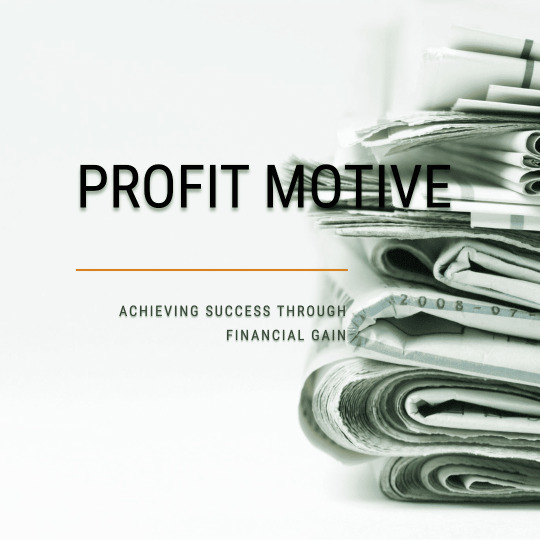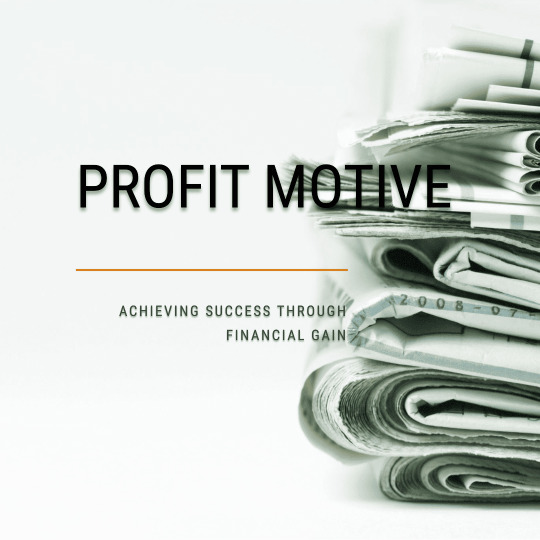#MarketForces
Explore tagged Tumblr posts
Text
#FuelPriceUpdate#NNPCL#NigeriaFuelMarket#FuelSupply#MarketForces#EnergySector#FuelEconomy#PetrolPrices
0 notes
Text
Housing Crises Happening All Over The World

There are housing crises happening all over the world. Rents have sky rocketed and property prices are unaffordable for many citizens. Market forces are not meeting the needs of the people. Some operators within the industry are telling us that it is all about a shortage of housing stock. However, houses and property are so expensive now it is no easy thing to just build more houses. Quite simply, the current set up is not working. Providing shelter is a basic prerequisite for governments in their role of looking out for their citizens. The economic settings are making some people wealthy via property ownership and another section of the community poor because of their omission in this regard. Figure 3.1Development of house prices, Australia, 1996��2021

Source: OECD, HM1.2 Housing prices (spreadsheet 1.2.1 AUS), https://www.oecd.org/housing/data/affordable-housing-database/housing-market.htm (accessed 3 October 2023) - (https://www.aph.gov.au/Parliamentary_Business/Committees/Joint/Northern_Australia/WorkforceDevelopment/First_Report/Chapter_3_-_Background_on_housing) “Among renters and mortgagees combined, it found 75 per cent of people are scared about their financial security because of the housing crisis.” - (https://www.abc.net.au/news/2023-07-24/survey-finds-majority-of-australians-living-under-housing-stress/102639122)

Photo by PhotoMIX Company on Pexels.com
Market Forces Have Failed The People In Housing
Government for all of the people is another general credo that most elected governments claim adherence to. It seems that we are returning to pre-Enlightenment times when the propertied class was drastically favoured by the governments of the day. Neoliberalism has created an unfair 2 speed economy, the ‘haves’ and ‘have nots’. The gulf between these two groups is widening more and more in terms of wealth and opportunity. Housing has become the flash point for social unrest. Families living in tents on the fringes of cities is not conducive to a socially cohesive whole. Poverty invariably produces crime and divisiveness. “Low standards and rising rents in the private rented sector are not the UK’s only housing problem. Recent rises in homelessness and rough sleeping, and the lack of affordable homes for sale and for social rent, also need addressing. “ - (https://www.theguardian.com/commentisfree/2023/nov/14/the-guardian-view-on-renting-in-britain-the-housing-crisis-is-also-a-health-crisis) “Just 15.5% of homes for sale were affordable for a typical U.S. household, the lowest share since Redfin started tracking this a decade ago. A home is deemed affordable if the estimated mortgage payment is no more than 30% of the average local monthly income. Affordability plunged 40% from before the pandemic, and 21% from just last year. Redfin says spiking mortgage rates were a key reason why.” - (https://www.npr.org/2023/12/24/1221480443/most-homes-for-sale-in-2023-were-not-affordable-for-a-typical-u-s-household#:~:text=Housingaffordabilityhitanewlowin2023Theshare,pacewithspikingmortgagerates.)

Photo by Mike Bird on Pexels.com Governments Must Step Up To Prioritize Housing Their Citizens If governments cannot oversee economies that provide fair opportunity for all of their citizens it is a failure of government. If these governments are in thrall to the money and power of the wealthy and those with vested interests it produces the stark imbalance we are seeing now. Government agencies like the ACCC and ASIC are supposed to monitor the market to ensure a reasonably fair and competitive marketplace. Duopolies and oligopolies are failures to get the job done in this regard. We are living in a time of the greatest concentration of market power in too few hands ever seen before. Toothless tigers are rife in the halls of power, having been bought off with well paid job opportunities and other corrupt means. Politicians and public servants are in the pockets of wealthy corporations. The love of private property ownership has pervaded relentlessly through all levels of government and the greater community. Nothing really stands in its way.

Photo by Monstera Production on Pexels.com Private Wealth Struggles With Social Problems Property ownership is the main means for the creation of generational wealth for the average citizen in the 21C. This is becoming increasingly expensive to manage and many citizens are locked out of the property market due to its high costs and returns. A Frankenstein monster has been created by the banks, property sector, and complicit governments. Housing is no longer shelter first and foremost it is another financial product. The financialization of all aspects of life continues apace. The money market’s rapacious appetite for ever more profits and growth turn everything into a financial product. The Commonwealth Bank of Australia declared a $10 billion profit in the last financial year. Lending money for mortgages is the bread and butter for many banks globally.

Photo by Jan van der Wolf on Pexels.com Financialization Buggering Up Housing For Shelter Requirements When are we going to wake up to the fact that this financialization is making the lives of many people miserable. The 2008 Global Financial Crisis was at its root a subprime mortgage loan debacle. This brought the house of cards down and cost global economies some $30 trillion. The money market driven by the pension fund managers is forever looking for higher returns. It is a desperate dance on the edge of risk and reward. Capitalism has morphed into this crazy high stakes game played with the homes and assets of real people rolled into faceless financial products for banks to deal and bet with. Profits and higher returns on investments are rolling over the lives of ordinary people like a grader flattening the landscape for future development. Nations are getting ever bigger via population growth, which means larger governments and more massive corporations. Individual lives are being lost to the proliferation of powerful entities which matter more, it seems. Housing crises are happening all over the world and market forces are definitely not the answer. Robert Sudha Hamilton is the author of Money Matters: Navigating Credit, Debt, and Financial Freedom. ©MidasWord

Read the full article
0 notes
Link
0 notes
Text
Profit Motive: A Comprehensive Guide to its 10 Impact

The profit motive is a critical driver in the world of business. The force propels entrepreneurs to innovate, businesses to compete, and economies to grow. But the profit motive is not just about making money. It's about creating value, improving efficiency, and contributing to societal progress. In this comprehensive guide, we'll explore the many facets of the profit motive, from its role in different economic systems to its ethical implications and impact on the economy.
Understanding the Profit Motive
What is the Profit Motive?

Understanding The Profit Motive What Is The Profit Motive? The profit motive is the incentive that drives businesses and entrepreneurs to strive for maximum profits. It's the heartbeat of economic activity, pushing individuals and companies to innovate, compete, and create wealth. The profit motive is the driving force behind the economic activity of businesses. The desire to profit motivates entrepreneurs to take risks, innovate, and strive for efficiency. The profit motive is the engine that powers the market economy, driving businesses to produce goods and services that consumers want and need. What is a Profit Motive Example? Profit Motive in Entrepreneurship Consider a tech entrepreneur who develops a groundbreaking app. Their primary goal? This profit motive pushes them to innovate, improve the app, and outperform competitors. The entrepreneur's profit motive is not just about making money. It's about creating customer value, improving the user experience, and positively impacting society. Profit Motive in E-commerce Sales In e-commerce, businesses strive to increase their average order value and customer retention rates, driven by profit. But the profit motive in e-commerce is not just about maximizing profits. It's about understanding customer needs, providing excellent customer service, and building long-term customer relationships.
The Profit Motive in Different Economies
What Type of Economy is the Profit Motive? Profit Motive in Capitalism In a capitalist economy, the profit motive reigns supreme. Private ownership and free markets allow businesses to strive for profit maximization, driving economic growth and innovation. But capitalism is not just about making profits. It's about creating customer value, improving efficiency, and contributing to societal progress. Profit Motive in Market Economy In a market economy, the profit motive guides businesses to efficiently respond to market forces, producing goods and services that consumers desire. The profit motive in a market economy is not just about making profits. It's about understanding market trends, responding to consumer needs, and creating customer value. What is the Profit Motive of Marxism? Contrasting Profit Motive and Marxist Economics In Marxist economics, the profit motive is often criticized for leading to exploitation and inequality. Instead, the focus is on collective ownership and meeting societal needs. But Marxist economics is not just about rejecting the profit motive. It's about promoting social justice, equality, and the common good.
The Profit Motive and Competition

The Profit Motive And Competition What is the Profit Motive and Competition? The Interplay of Profit Motive and Business Competition The profit motive and competition go hand in hand. Businesses compete to maximize profits, leading to better products, lower prices, and improved efficiency. But competition is not just about making profits. It's about improving products and services, meeting customer needs, and contributing to societal progress.
The Ethical Dimensions of Profit Motive
Is Profit Motive Good or Bad? The Positive Impact of Profit Motive The profit motive can drive innovation, job creation, and economic growth. It encourages businesses to improve their products and services, benefiting consumers and the economy. But the profit motive is not just about making money. It's about creating value, improving efficiency, and contributing to societal progress. Potential Downsides and Exploitation in Business However, unchecked profit motives can lead to unethical business practices and exploitation. It's crucial to balance profit motives with ethical considerations. But unethical business practices are not just about making profits. They're about exploiting workers, harming the environment, and undermining societal values. What is an Example of a Bad Profit Motive? Unethical Business Practices Driven by Profit Motive An example of a lousy profit motive could be a company that exploits its workers or harms the environment to increase profits. But the wrong profit motive is about more than just making money. It's about disregarding ethical standards, harming stakeholders, and undermining societal values.
Profit Motive in Different Business Structures
What are Profit Motive and Non-Profit Motive? Profit Motive in For-Profit Organizations The profit motive drives for-profit organizations. They aim to maximize profits to provide returns to their owners or shareholders. But the profit motive in for-profit organizations is not just about making money. It's about creating customer value, improving efficiency, and contributing to societal progress. The Role of Non-Profit Motive in Charitable Organizations Non-profit organizations, on the other hand, are driven by a mission rather than profit. They reinvest surplus funds into their mission rather than distributing it to owners or shareholders. But the non-profit motive is not just about rejecting the profit motive. It's about promoting social justice, equality, and the common good.
The Impact of Profit Motive on the Economy
How Does Profit Motive Affect the Economy? Profit Motive and Wealth Creation The profit motive drives businesses to create wealth, contributing to economic growth and prosperity. But wealth creation is not just about making profits. It's about improving products and services, meeting customer needs, and contributing to societal progress. Profit Motive and Job Creation By striving to maximize profits, businesses can also create jobs and contribute to economic expansion. But job creation is not just about making profits. It's about improving products and services, meeting customer needs, and contributing to societal progress.
Profit Motive and Employee Benefits

Profit Motive And Employee Benefits Profit-Sharing Plans and Employee Compensation How Profit Motive Influences Employee Benefits The profit motive can have a significant impact on employee benefits. Businesses driven by profit are often motivated to invest in their employees, recognizing that a happy, healthy, and motivated workforce can contribute to increased productivity and, ultimately, higher profits. It can lead to the implementation of comprehensive benefits packages, including health insurance, retirement plans, and even profit-sharing schemes. The Role of Profit-Sharing Plans in Business Profit-sharing plans are a prime example of how the profit motive can directly benefit employees. These plans distribute a portion of a company's profits among its employees, aligning the workforce's interests with the business's financial success. It provides employees with a substantial share of the profits they helped to generate and fosters a sense of ownership and commitment to the company's success.
Profit Motive and Taxation
Corporate Tax and Profit Motive How Profit Motive Influences Corporate Tax Strategies The profit motive can also influence a company's approach to taxation. Businesses seeking to maximize profits may employ various strategies to minimize their tax liabilities, such as taking advantage of tax credits, deductions, and incentives. While these strategies are legal and often encouraged by tax policy, they illustrate how the profit motive can drive businesses to optimize all aspects of their operations, including their tax planning. Personal Income Tax and Profit Motive The Interplay of Profit Motive and Personal Income Tax On a personal level, the profit motive can influence decisions about income and taxation. For example, profit-motivated entrepreneurs may reinvest earnings into their businesses to fuel growth and minimize income tax liability. It illustrates how the profit motive can shape financial decision-making at both the corporate and individual levels.
Profit Motive and Business Efficiency
The Role of Profit Motive in Business Efficiency Profit Motive and Cost Reduction The desire for profit can drive businesses to become more efficient and reduce costs. It could involve streamlining operations, investing in technology, or finding more cost-effective suppliers. Businesses can increase their profit margins by reducing costs, demonstrating how the profit motive can improve business efficiency. Profit Motive and Sales Increase Similarly, the profit motive can drive businesses to increase sales. It could involve expanding into new markets, launching new products, or investing in marketing and advertising. By increasing sales, businesses can boost their profits, further illustrating the influential role of the profit motive in driving business growth and success.
Profit Motive and Market Forces

Profit Motive And Market Forces The Interplay of Profit Motive and Market Forces How Profit Motive Responds to Supply and Demand The profit motive is intrinsically linked to the fundamental market forces of supply and demand. Businesses, driven by the desire to maximize profits, respond to changes in these forces. For instance, if a product's demand increases, a profit-motivated business would increase production to meet this demand and capitalize on the potential for increased sales and profits. Profit Motive and Price Determination Price determination is another area where the profit motive and market forces intersect. Businesses aim to set prices to maximize profits, considering production costs, competition, and consumer willingness to pay. This dynamic pricing strategy, driven by the profit motive, plays a crucial role in the efficient functioning of markets.
Profit Motive and Innovation
The Role of Profit Motive in Business Innovation How Profit Motive Drives Innovation The profit motive can be a powerful catalyst for innovation. In their quest for increased profits, businesses are incentivized to develop new products, improve existing ones, or find more efficient production methods. This drive for innovation benefits businesses in terms of potential profit growth and contributes to societal progress by introducing new technologies, products, and services. Profit Motive and Risk Management Innovation often involves risk, and the profit motive plays a role here too. Businesses must balance the potential profits from an innovative idea with the risks involved in its development and implementation. This risk management aspect of the profit motive encourages businesses to make calculated decisions that can lead to sustainable profit growth.
Profit Motive in the Global Economy
The Impact of Profit Motive on Global Trade How Profit Motive Influences International Business In the global economy, the profit motive influences international business decisions. Companies seeking to maximize profits may enter foreign markets, source materials from overseas, or establish international partnerships. These decisions, driven by the profit motive, contribute to the interconnectedness of the global economy and can lead to economic growth and development in different parts of the world. Profit Motive and Corporate Social Responsibility As businesses operate globally, they also face increasing scrutiny regarding their social and environmental impact. Here, the profit motive must be balanced with corporate social responsibility. Companies recognize that long-term profitability is linked to sustainable and ethical business practices. This shift represents an evolution of the profit motive, incorporating a broader range of considerations beyond immediate financial gain.
Profit Motive and Consumer Behavior
The Influence of Profit Motive on Consumer Choices How Profit Motive Shapes Product and Service Offerings The profit motive significantly influences the range of products and services available to consumers. Businesses, driven to maximize profits, strive to offer products and services that meet consumer needs and preferences. This dynamic interaction between the profit motive and consumer behavior shapes the marketplace, leading to diverse offerings catering to various consumer needs and tastes. Profit Motive and Customer Experience The profit motive also impacts the customer experience. Businesses recognize that providing a positive customer experience can increase customer loyalty, repeat business, and positive word-of-mouth, boosting profits. As such, the profit motive can drive businesses to invest in customer service, user-friendly interfaces, and other aspects of the customer experience.
Profit Motive and Social Impact
The Role of Profit Motive in Social Entrepreneurship Balancing Profit Motive and Social Impact In recent years, the concept of social entrepreneurship has gained traction. Social entrepreneurs balance the profit motive with the desire to make a positive social impact. They build businesses that aim to solve social problems or meet societal needs while generating profits. This approach represents a new way of thinking about the profit motive, demonstrating that businesses can be both profitable and socially responsible. Profit Motive and Social Innovation The profit motive can also drive social innovation. Businesses, particularly those in the social enterprise sector, are motivated to develop innovative solutions to social problems in their quest for profits. It can lead to developing products and services that generate profits and contribute to societal well-being.
Profit Motive and Sustainability
The Intersection of Profit Motive and Environmental Sustainability Profit Motive and Sustainable Business Practices The profit motive can play a significant role in promoting environmental sustainability. Businesses increasingly recognize that sustainable business practices can lead to cost savings, improved brand reputation, and increased customer loyalty – all of which can boost profits. This realization drives businesses to adopt energy efficiency, waste reduction, and sustainable sourcing practices, demonstrating how the profit motive can contribute to environmental sustainability. Profit Motive and Green Innovation Similarly, the profit motive can spur green innovation. In their quest for profits, businesses are motivated to develop innovative, profitable, and environmentally friendly products and services. It can lead to the development of green technologies, renewable energy solutions, and other innovations contributing to environmental sustainability.
Profit Motive and Corporate Governance

Profit Motive And Corporate Governance The Role of Profit Motive in Corporate Governance Profit Motive and Shareholder Value The profit motive plays a significant role in corporate governance, particularly in the context of shareholder value. Companies are often driven to maximize shareholder value, typically increasing profits. This focus on profit maximization can influence a wide range of corporate governance decisions, from strategic planning and risk management to executive compensation and dividend policies. Profit Motive and Corporate Ethics However, the pursuit of profits must be balanced with ethical considerations. Corporate governance mechanisms, such as codes of conduct, ethics committees, and whistleblower policies, can ensure that the profit motive does not lead to unethical or illegal behavior. This balance between profit maximization and ethical conduct is critical to good corporate governance.
Profit Motive and Economic Policy
The Influence of Profit Motive on Economic Policy Profit Motive and Tax Policy The profit motive can influence economic policy, particularly tax policy. Governments often use tax incentives to motivate businesses to invest, create jobs, or undertake specific activities. These incentives are based on the understanding that the profit motive drives businesses and will respond to opportunities to increase their profits. Profit Motive and Regulatory Policy The profit motive also plays a role in regulatory policy. Governments must balance the desire to foster a business environment that maximizes profit with the need to protect consumers, workers, and the environment. This balance is often achieved through regulations that set standards for business conduct while allowing businesses to earn profits.
Profit Motive and the Future of Business
The Evolving Role of Profit Motive in Business Profit Motive and the Triple Bottom Line The role of the profit motive in business is evolving. More and more businesses are adopting the triple bottom line concept, emphasizing profits (the traditional bottom line) and social and environmental performance. This approach recognizes that businesses can pursue profits while contributing to social and environmental well-being. Profit Motive and Business Model Innovation The profit motive is also driving business model innovation. Businesses are exploring new ways to generate profits while creating value for customers, employees, and society. Read the full article
#BusinessEthics#BusinessRisk#ConsumerBehavior#CorporateCulture#CorporateGovernance#CorporateStrategy#EconomicDevelopment#GlobalEconomy#GovernmentRegulation#HumanResources#IndustryDynamics#Innovation#MarketForces#OrganizationalStructure#ProfitMotive#SocialImpact#Sustainability#TechnologicalAdvancements
0 notes
Text


Long live the Chief 🔊
#EuropeanUnionGDP📉 #SocialistGetRecked #RisingPrices #MarketForces #AfricanExports #WorldIslandTheory #RussiaWon #FreeMarket #IntraAfricanTrade #MoneyVelocity #HowToWakanda
0 notes
Text
The Bayard Method Delivers Consistent Betting Results

Based in New Jersey, John F. Abate leads lottery strategy companies such as Marketforcer and Wintracker (DBA Success Publishers, LLC). One of John F. Abate’s profit-multiplying systems is the Bayard Method, which distills the lessons of Jed Bayard, who holds records for major jackpots within one month and an up to 82 percent winning record in horse racing over 60 days. You can learn more about the Bayard Method here: http://bynd.hot-new-offers.com/
An underpinning of Bayard’s system is the realization that major jackpots occur more frequently once sales start dropping. When the big winner is announced, attention shifts to the lottery and the increased sales cycle begins again until a winner is announced. Understanding this dynamic allows the educated bettor to purchase lottery tickets only when the odds of winning are at the highest.
Another aspect of this is understanding that slot machines are rigged, with a few winning machines seeded among those that will lead to a losing session. By understanding the signs that you are at a winning slot machine and knowing how to play it, you significantly increase your odds of making cash.
Regarding horse racing, Bayard offers a system that moves beyond studying a horse’s past performance, which is not an accurate indicator of current odds. Instead, the bettor looks at the list of entries and selects the prospective winner based on readily available information. Cumulatively, these approaches enable a consistently winning approach across various betting modes.
0 notes
Link
#consumerbehavior#demandandsupply#demandandsupplyinteraction#demandcurve#economicequilibrium#economicindicators#economicprinciples#economics#marketdynamics#marketefficiency#marketequilibrium#marketforces#markettrends#pricedetermination#priceelasticity#pricemechanism#supplyanddemandanalysis#supplyanddemandfactors#supplycurve
0 notes
Photo

Taxified!? #maps #mylgstory #taxy #bolt #taxify #marketforces #ehailing #owerri #localguides https://www.instagram.com/p/CFmXA7SFfsB/?igshid=1osboswpzwgq7
0 notes
Text
“Armenian director Artavazd Pelechian is one of the most visionary artists to have emerged from the Soviet Union, but like several of his friends making cinema in the then-existing republics of the South Caucasus, he struggled to work uninterrupted or breach the margins of canonised world film history. When he embarked on his career during the early 1960s, his near-wordless black-and-white films were way ahead of their time in blending the reality levels of documentary archive and poetic fiction. Their shortness of length and blurring of categories, though, reinforced their status as outliers, resistant to being co-opted and stripped of their arcane mystery by crass marketforces, and unlikely candidates for mainstream popularity. Pelechian has a near-cult core of devotees, and few initiated into the singular, intuitive strangeness of his montage experiments would argue with the evaluation of his contemporary, Georgian-Armenian maverick Sergei Parajanov, that he’s one of cinema’s rare ‘authentic geniuses’. For all that, his name is still rarely heard beyond cinephile circles.
(…)
Pelechian, who is now eighty-two years old, grew up in Armenia’s second-largest city, Leninakan (now called Gyumri). There was no cinema, let alone a film school. After working as a mechanical engineer for a while, he found his way, like many budding directors across the Soviet bloc, to Moscow to enrol at famed film institute VGIK. (As well as Pelechian, the school’s illustrious list of former students includes Parajanov, Mikhail Vartanov, Andrei Tarkovsky, Elem Klimov, Larisa Shepitko and Kira Muratova.) The surging movement of crowds and natural forces during states of upheaval and emergency recur in Pelechian’s work, established in his earliest shorts. The Beginning (1967) captures the revolutionary forces of history set in motion by 1917’s October Revolution in a distilled, ten-minute blizzard of 50 years of newsreel footage. We (1967) marks the trauma of the 1915 Armenian Genocide on the Armenian people – a modern cataclysm at that time, still little acknowledged – with a sombre, mesmeric weave of daily life and ritualised mourning. Inhabitants (1970) evokes the existential threat posed by humans through frenzied swirls and stampedes of panicked animals.
Most of Pelechian’s 13 films as director have been shorts (at just over an hour, Nature is an exception). Rhythmic, largely dialogue-free and classical music-driven, they operate at a subconscious level. Time can feel strangely stretched and looped in them, due to the ‘distance montage’ method he developed. Rather than assembling and juxtaposing shots directly beside each other to create meaning, as montage pioneer Sergei Eisenstein proposed, Pelechian separated linked or repeated images, inserting other frames between them so that they would reach back and forward across the film towards each other with reverberating energy, connecting the viewer with a grander-scale cosmic unity that absorbs all difference. ‘For me, distance montage opens up the mysteries of the movement of the universe. I can feel how everything is made and put together,’ he told the film critic Scott MacDonald in 1991.
Pelechian’s work at first hardly travelled, but he has enjoyed special appreciation in France since the 1980s, after film critic Serge Daney saw some of his films on a visit to Armenia and, blown away, wrote a glowing article for French newspaper Libération, declaring the director ‘a missing link in the true history of cinema’. French New Wave pioneer Jean-Luc Godard then became a vocal champion of Pelechian’s work and an eager conversational partner on montage and the essence of cinema, as both sought to push the medium’s possibilities.
(…)
In this maximalist visual symphony, soundtracked by Beethoven, Mozart, Shostakovich, Avet Terterian and Tigran Hamasyan, nature’s cataclysmic forces upend human habitation, perched precariously on land that is still for just a relative second of the planet’s billions of years of history. The sheer destructive might on show defies comprehension, let alone control, amid its terrible beauty. But morning breaks again. And if anything can contend with the ineffable, it’s filmmaking, according to Pelechian. ‘I am convinced that cinema can convey certain things that no language in the world can translate,’ he said in 2000, comparing it to the Tower of Babel; to before the world was drawn apart by languages. A cinema that trusts in unity’s eternal renewals out of chaos and heaving disruption may be just the salve for our treacherous times.”
2 notes
·
View notes
Text
Jens Income Team Review
Jens Income Team Review Software IconYou can Jens Income Teamliterally by parting with free programming. Locales like PerInstallCash (presently shut down) will give you free programming to share and pay you up to $2 each time someone introduces it, that is on the grounds that the product bundles accompany a couple of the organization publicists offers packaged in with them. Office Space IconLot's of office rental organizations run allude a companion plans and most of these plans can pay out a horrendous parcel of cash for each new client you will join. A portion of the workplace organizations I've ran over have paid out around £300 per new client. Just locate a couple of projects in your general vicinity and start publicizing them on free ordered promotion locales like Gumtree and Craigslist, you should simply advise them to connect with the workplace organization and notice your name. Jens Income Team Review

Messing around IconMaking cash from playing computer games is positively conceivable and there are very a couple of various ways that you can do it. In a portion of the well known internet games there's a great deal of cash to be made basically by selling in game things or undeniable level records. Alternate ways incorporate setting up your own blog or YouTube channel talking about games, walkthroughs and new deliveries. At that point there's SwagBucks that will pay you for playing on the web arcade style games. Be careful about sites that guarantee you can get paid to turn into a games analyzer as while it is "conceivable", it's exceptionally troublesome and there are a ton of online tricks encompassing this. Jens Income Team Review
Clicking IconBelieve it or not however with destinations like NeoBux and you can really get paid to sit and click. You should simply see the commercials that they show, at that point the publicists pay them and they pass on a portion of the cas to you. You can even see review promotions before you join and you can single out the adverts that you'd prefer to see. Jens Income Team Review 54. Get paid to watch recordings. Watching Videos IconThere's quite a couple of sites out there that will pay you to watch recordings, some will pay you in genuine cash while others issue vouchers. A couple of these locales incorporate SwagBucks, Gift Hunter Club, Maximiles and Gift Hulk. At that point there's likewise GetJam on the off chance that you'd like to get paid for watching recordings on your portable. You'll principally be watching things like adverts, film trailers, music recordings and game sneak peaks. Jens Income Team Review
Thought IconThe Million Dollar Homepage is only one illustration of some cunning reasoning that made it's maker Alex Tew a ton more extravagant. The web is still genuinely new and there's a lot of thoughts like these yet to surface, possibly yours could be the following enormous thing? On the off chance that you do concoct a thought, you could go to Freelancer and discover someone that can transform it into a reality.

Cell Phone AppsYou don't have to have the tech know how to Jens Income Teamwith a cell phone application, simply a smart thought. It's simple enough to discover an engineer that can transform your thought into reality on a site like Freelancer and then you can simply take a load off while the application gets some cash whether that be from direct buys or in-application ads. CrowdCube Homepage ScreenshotUsing locales like CrowdCube you can peruse and put resources into either settled organizations or organizations that you think may turn into the following huge thing. It's allowed to join and anyone can join and contribute. It's dependent upon you to choose precisely the amount you'd prefer to contribute from just £10 and you can make a broadened portfolio by putting resources into however many organizations as you like.
Zopa Homepage ScreenshotPeer to peer loaning permits you to legitimately loan your cash on the web and get revenue on the sum you acquire. While the measure of cash you'll cause will to rely upon the amount you loan the financing costs do will in general be genuinely sensible. Destinations like Zopa take out the problem and make the cycle truly simple by coordinating savers with people who need to get. You just put your cash into your Zopa account and they'll loan it out to borrowers in little lumps, at that point as they repay it every month with the additional premium your cash starts to develop. Vehicle Sharing IconLiftshare is the site that permits you to Jens Income Teamby essentially allowing someone to hop in your vehicle and offer a lift with. You should simply post where you'll be going, when you'll be setting off and the amount you need from someone needing to share. Jens Income Team Review
YourParkingSpace Homepage ScreenshotWhilst this one may sound foolish, on the off chance that you have vehicle parking spot or carport that you don't utilize, you'll be happy to hear that there's kin who will really pay great cash to lease it out – particularly in the event that you live in a developed territory. Sites like YourParkingSpace make it simple to list and your space will be displayed to an entire heap of individuals searching for a spot to stop prepared to lease. Secret Shopper IconThere's a lot of statistical surveying organizations that will pay you to stroll into stores claiming to be a client all together assemble data on items, administrations and client experience for them. MarketForce are among the biggest secret shopping organizations in the UK and you can enlist online to turn into a secret customer.
Life ModelIf you're sure with your body then you can join at ModelReg to turn into a day to day existence model. Bosses like specialists, movie creation organizations and clinical schools are continually perusing the index meaning you could get picked and bring in yourself a touch of cash for presenting bare.
Depop Website HomepageOpening your own online shop needn't be pretty much as hard as you would might suspect, particularly with applications like Depop that permit you to sell things just by snapping a photo. Depop is the interpersonal organization for selling and permits you to effectively open up your own little online shop from your cell phone. Also you can follow your companions to perceive what they're purchasing, selling and preferring and secretly talk with individuals to arrange deals. Information EntryIt may be exhausting, however it's simple and it pays. There's many managers ordinary web based searching for someone to enter information for them either on the grounds that they either don't have the actual opportunity or essentially can't be annoyed and would prefer to pay another person to do it. Destinations like Clickworker pay to enter information and there's many information passage occupations recorded every day on locales like Freelancer and Elance. Jens Income Team Review

uTest Homepage ScreenshotCompanies like uTest permit you to Jens Income Teamby testing cell phone applications. You can utilize the pay to enhance your present place of employment or attempt to follow the strides of a portion of the top analyzers at procure a huge number of dollars every month by working with them full time. uTest guarantee that your profession development is absolutely needy upon you. Lucidity Homepage ScreenshotIf there's a subject that you're a specialist on then you can Jens Income Teamby contribution private instructing through administrations like Clarity. Rates fluctuate, yet for the normal brief meeting you could ordinarily hope to acquire around $50 – you're responsible for your own rate and you can set it in like manner. Whenever you've joined clearness they'll ensure that individuals searching for counsel can discover you and you should simply trust that the calls will come in.
Allude a Friend IconWebsites like Groupon will pay you to just suggest your companions. In the event that you run over something on their site that you figure your companion may like you should simply interface them over to it utilizing the "allude a companion" connect gave and in the event that they wind up buying it, Groupon will give you £6 credit. Italki HomepageWith iTalki you can undoubtedly Jens Income Teamby showing a language on the web. There's over 1.5 million understudies on the site needing to get familiar with a language and you can instruct so a lot or as little as you need as indicated by your timetable. The solitary thing you'll require is a headset and you start educating from any place you need giving you have a web association. Hostgator Homepage ScreenshotThis is a shameless little strategy that really permits you to Jens Income Teamby doing simply parting with free sites. With it you could procure yourself around $125 each and every time you do everything because of the HostGator member program! Peruse my full guide here.
Discussion IconThese days there's a lot of free programming accessible and an online gathering isn't too hard to begin. Whenever you've figured out how to get a functioning local area together you can rapidly start bringing in cash and the responsibility isn't too extraordinary. 71. Jens Income Teamfrom eBay without selling anything. eBay HomepageYou can join as an eBay offshoot and Jens Income Team from different people groups barters rather than really selling anything yourself. You should simply impart the connect to a bartering to your partner ID appended and in the event that anyone that is navigated the connection, proceeds to put the triumphant offer you'll get paid a commission.

Portable Adverts IconBy utilizing the totally free Qustodian application you can bring in cash just by review adverts on your cell phone. It chips away at most sorts of cell phones and the entirety of the adverts and offers you get will be customized to you dependent on your inclinations. Bzzagent Homepage ScreenshotBzzagent (presently shut) is a creative informal showcasing organization. You'll will evaluate items and you should simply share your contemplations through web-based media or by composing a little item survey. A portion of the items are pristine and energizing and you could will attempt them before they've even been delivered.
https://www.gncpedia.com/jens-income-team/ https://www.instagram.com/jensincometeam/ https://twitter.com/jensincometeam/ https://sites.google.com/view/jensincometeam https://www.facebook.com/jensincometeam/
1 note
·
View note
Text
Profit Motive: A Comprehensive Guide to its 10 Impact

The profit motive is a critical driver in the world of business. The force propels entrepreneurs to innovate, businesses to compete, and economies to grow. But the profit motive is not just about making money. It's about creating value, improving efficiency, and contributing to societal progress. In this comprehensive guide, we'll explore the many facets of the profit motive, from its role in different economic systems to its ethical implications and impact on the economy.
Understanding the Profit Motive
What is the Profit Motive?

Understanding The Profit Motive What Is The Profit Motive? The profit motive is the incentive that drives businesses and entrepreneurs to strive for maximum profits. It's the heartbeat of economic activity, pushing individuals and companies to innovate, compete, and create wealth. The profit motive is the driving force behind the economic activity of businesses. The desire to profit motivates entrepreneurs to take risks, innovate, and strive for efficiency. The profit motive is the engine that powers the market economy, driving businesses to produce goods and services that consumers want and need. What is a Profit Motive Example? Profit Motive in Entrepreneurship Consider a tech entrepreneur who develops a groundbreaking app. Their primary goal? This profit motive pushes them to innovate, improve the app, and outperform competitors. The entrepreneur's profit motive is not just about making money. It's about creating customer value, improving the user experience, and positively impacting society. Profit Motive in E-commerce Sales In e-commerce, businesses strive to increase their average order value and customer retention rates, driven by profit. But the profit motive in e-commerce is not just about maximizing profits. It's about understanding customer needs, providing excellent customer service, and building long-term customer relationships.
The Profit Motive in Different Economies
What Type of Economy is the Profit Motive? Profit Motive in Capitalism In a capitalist economy, the profit motive reigns supreme. Private ownership and free markets allow businesses to strive for profit maximization, driving economic growth and innovation. But capitalism is not just about making profits. It's about creating customer value, improving efficiency, and contributing to societal progress. Profit Motive in Market Economy In a market economy, the profit motive guides businesses to efficiently respond to market forces, producing goods and services that consumers desire. The profit motive in a market economy is not just about making profits. It's about understanding market trends, responding to consumer needs, and creating customer value. What is the Profit Motive of Marxism? Contrasting Profit Motive and Marxist Economics In Marxist economics, the profit motive is often criticized for leading to exploitation and inequality. Instead, the focus is on collective ownership and meeting societal needs. But Marxist economics is not just about rejecting the profit motive. It's about promoting social justice, equality, and the common good.
The Profit Motive and Competition

The Profit Motive And Competition What is the Profit Motive and Competition? The Interplay of Profit Motive and Business Competition The profit motive and competition go hand in hand. Businesses compete to maximize profits, leading to better products, lower prices, and improved efficiency. But competition is not just about making profits. It's about improving products and services, meeting customer needs, and contributing to societal progress.
The Ethical Dimensions of Profit Motive
Is Profit Motive Good or Bad? The Positive Impact of Profit Motive The profit motive can drive innovation, job creation, and economic growth. It encourages businesses to improve their products and services, benefiting consumers and the economy. But the profit motive is not just about making money. It's about creating value, improving efficiency, and contributing to societal progress. Potential Downsides and Exploitation in Business However, unchecked profit motives can lead to unethical business practices and exploitation. It's crucial to balance profit motives with ethical considerations. But unethical business practices are not just about making profits. They're about exploiting workers, harming the environment, and undermining societal values. What is an Example of a Bad Profit Motive? Unethical Business Practices Driven by Profit Motive An example of a lousy profit motive could be a company that exploits its workers or harms the environment to increase profits. But the wrong profit motive is about more than just making money. It's about disregarding ethical standards, harming stakeholders, and undermining societal values.
Profit Motive in Different Business Structures
What are Profit Motive and Non-Profit Motive? Profit Motive in For-Profit Organizations The profit motive drives for-profit organizations. They aim to maximize profits to provide returns to their owners or shareholders. But the profit motive in for-profit organizations is not just about making money. It's about creating customer value, improving efficiency, and contributing to societal progress. The Role of Non-Profit Motive in Charitable Organizations Non-profit organizations, on the other hand, are driven by a mission rather than profit. They reinvest surplus funds into their mission rather than distributing it to owners or shareholders. But the non-profit motive is not just about rejecting the profit motive. It's about promoting social justice, equality, and the common good.
The Impact of Profit Motive on the Economy
How Does Profit Motive Affect the Economy? Profit Motive and Wealth Creation The profit motive drives businesses to create wealth, contributing to economic growth and prosperity. But wealth creation is not just about making profits. It's about improving products and services, meeting customer needs, and contributing to societal progress. Profit Motive and Job Creation By striving to maximize profits, businesses can also create jobs and contribute to economic expansion. But job creation is not just about making profits. It's about improving products and services, meeting customer needs, and contributing to societal progress.
Profit Motive and Employee Benefits

Profit Motive And Employee Benefits Profit-Sharing Plans and Employee Compensation How Profit Motive Influences Employee Benefits The profit motive can have a significant impact on employee benefits. Businesses driven by profit are often motivated to invest in their employees, recognizing that a happy, healthy, and motivated workforce can contribute to increased productivity and, ultimately, higher profits. It can lead to the implementation of comprehensive benefits packages, including health insurance, retirement plans, and even profit-sharing schemes. The Role of Profit-Sharing Plans in Business Profit-sharing plans are a prime example of how the profit motive can directly benefit employees. These plans distribute a portion of a company's profits among its employees, aligning the workforce's interests with the business's financial success. It provides employees with a substantial share of the profits they helped to generate and fosters a sense of ownership and commitment to the company's success.
Profit Motive and Taxation
Corporate Tax and Profit Motive How Profit Motive Influences Corporate Tax Strategies The profit motive can also influence a company's approach to taxation. Businesses seeking to maximize profits may employ various strategies to minimize their tax liabilities, such as taking advantage of tax credits, deductions, and incentives. While these strategies are legal and often encouraged by tax policy, they illustrate how the profit motive can drive businesses to optimize all aspects of their operations, including their tax planning. Personal Income Tax and Profit Motive The Interplay of Profit Motive and Personal Income Tax On a personal level, the profit motive can influence decisions about income and taxation. For example, profit-motivated entrepreneurs may reinvest earnings into their businesses to fuel growth and minimize income tax liability. It illustrates how the profit motive can shape financial decision-making at both the corporate and individual levels.
Profit Motive and Business Efficiency
The Role of Profit Motive in Business Efficiency Profit Motive and Cost Reduction The desire for profit can drive businesses to become more efficient and reduce costs. It could involve streamlining operations, investing in technology, or finding more cost-effective suppliers. Businesses can increase their profit margins by reducing costs, demonstrating how the profit motive can improve business efficiency. Profit Motive and Sales Increase Similarly, the profit motive can drive businesses to increase sales. It could involve expanding into new markets, launching new products, or investing in marketing and advertising. By increasing sales, businesses can boost their profits, further illustrating the influential role of the profit motive in driving business growth and success.
Profit Motive and Market Forces

Profit Motive And Market Forces The Interplay of Profit Motive and Market Forces How Profit Motive Responds to Supply and Demand The profit motive is intrinsically linked to the fundamental market forces of supply and demand. Businesses, driven by the desire to maximize profits, respond to changes in these forces. For instance, if a product's demand increases, a profit-motivated business would increase production to meet this demand and capitalize on the potential for increased sales and profits. Profit Motive and Price Determination Price determination is another area where the profit motive and market forces intersect. Businesses aim to set prices to maximize profits, considering production costs, competition, and consumer willingness to pay. This dynamic pricing strategy, driven by the profit motive, plays a crucial role in the efficient functioning of markets.
Profit Motive and Innovation
The Role of Profit Motive in Business Innovation How Profit Motive Drives Innovation The profit motive can be a powerful catalyst for innovation. In their quest for increased profits, businesses are incentivized to develop new products, improve existing ones, or find more efficient production methods. This drive for innovation benefits businesses in terms of potential profit growth and contributes to societal progress by introducing new technologies, products, and services. Profit Motive and Risk Management Innovation often involves risk, and the profit motive plays a role here too. Businesses must balance the potential profits from an innovative idea with the risks involved in its development and implementation. This risk management aspect of the profit motive encourages businesses to make calculated decisions that can lead to sustainable profit growth.
Profit Motive in the Global Economy
The Impact of Profit Motive on Global Trade How Profit Motive Influences International Business In the global economy, the profit motive influences international business decisions. Companies seeking to maximize profits may enter foreign markets, source materials from overseas, or establish international partnerships. These decisions, driven by the profit motive, contribute to the interconnectedness of the global economy and can lead to economic growth and development in different parts of the world. Profit Motive and Corporate Social Responsibility As businesses operate globally, they also face increasing scrutiny regarding their social and environmental impact. Here, the profit motive must be balanced with corporate social responsibility. Companies recognize that long-term profitability is linked to sustainable and ethical business practices. This shift represents an evolution of the profit motive, incorporating a broader range of considerations beyond immediate financial gain.
Profit Motive and Consumer Behavior
The Influence of Profit Motive on Consumer Choices How Profit Motive Shapes Product and Service Offerings The profit motive significantly influences the range of products and services available to consumers. Businesses, driven to maximize profits, strive to offer products and services that meet consumer needs and preferences. This dynamic interaction between the profit motive and consumer behavior shapes the marketplace, leading to diverse offerings catering to various consumer needs and tastes. Profit Motive and Customer Experience The profit motive also impacts the customer experience. Businesses recognize that providing a positive customer experience can increase customer loyalty, repeat business, and positive word-of-mouth, boosting profits. As such, the profit motive can drive businesses to invest in customer service, user-friendly interfaces, and other aspects of the customer experience.
Profit Motive and Social Impact
The Role of Profit Motive in Social Entrepreneurship Balancing Profit Motive and Social Impact In recent years, the concept of social entrepreneurship has gained traction. Social entrepreneurs balance the profit motive with the desire to make a positive social impact. They build businesses that aim to solve social problems or meet societal needs while generating profits. This approach represents a new way of thinking about the profit motive, demonstrating that businesses can be both profitable and socially responsible. Profit Motive and Social Innovation The profit motive can also drive social innovation. Businesses, particularly those in the social enterprise sector, are motivated to develop innovative solutions to social problems in their quest for profits. It can lead to developing products and services that generate profits and contribute to societal well-being.
Profit Motive and Sustainability
The Intersection of Profit Motive and Environmental Sustainability Profit Motive and Sustainable Business Practices The profit motive can play a significant role in promoting environmental sustainability. Businesses increasingly recognize that sustainable business practices can lead to cost savings, improved brand reputation, and increased customer loyalty – all of which can boost profits. This realization drives businesses to adopt energy efficiency, waste reduction, and sustainable sourcing practices, demonstrating how the profit motive can contribute to environmental sustainability. Profit Motive and Green Innovation Similarly, the profit motive can spur green innovation. In their quest for profits, businesses are motivated to develop innovative, profitable, and environmentally friendly products and services. It can lead to the development of green technologies, renewable energy solutions, and other innovations contributing to environmental sustainability.
Profit Motive and Corporate Governance

Profit Motive And Corporate Governance The Role of Profit Motive in Corporate Governance Profit Motive and Shareholder Value The profit motive plays a significant role in corporate governance, particularly in the context of shareholder value. Companies are often driven to maximize shareholder value, typically increasing profits. This focus on profit maximization can influence a wide range of corporate governance decisions, from strategic planning and risk management to executive compensation and dividend policies. Profit Motive and Corporate Ethics However, the pursuit of profits must be balanced with ethical considerations. Corporate governance mechanisms, such as codes of conduct, ethics committees, and whistleblower policies, can ensure that the profit motive does not lead to unethical or illegal behavior. This balance between profit maximization and ethical conduct is critical to good corporate governance.
Profit Motive and Economic Policy
The Influence of Profit Motive on Economic Policy Profit Motive and Tax Policy The profit motive can influence economic policy, particularly tax policy. Governments often use tax incentives to motivate businesses to invest, create jobs, or undertake specific activities. These incentives are based on the understanding that the profit motive drives businesses and will respond to opportunities to increase their profits. Profit Motive and Regulatory Policy The profit motive also plays a role in regulatory policy. Governments must balance the desire to foster a business environment that maximizes profit with the need to protect consumers, workers, and the environment. This balance is often achieved through regulations that set standards for business conduct while allowing businesses to earn profits.
Profit Motive and the Future of Business
The Evolving Role of Profit Motive in Business Profit Motive and the Triple Bottom Line The role of the profit motive in business is evolving. More and more businesses are adopting the triple bottom line concept, emphasizing profits (the traditional bottom line) and social and environmental performance. This approach recognizes that businesses can pursue profits while contributing to social and environmental well-being. Profit Motive and Business Model Innovation The profit motive is also driving business model innovation. Businesses are exploring new ways to generate profits while creating value for customers, employees, and society. Read the full article
#BusinessEthics#BusinessRisk#ConsumerBehavior#CorporateCulture#CorporateGovernance#CorporateStrategy#EconomicDevelopment#GlobalEconomy#GovernmentRegulation#HumanResources#IndustryDynamics#Innovation#MarketForces#OrganizationalStructure#ProfitMotive#SocialImpact#Sustainability#TechnologicalAdvancements
0 notes
Text
#15yrsago Why market-forces can't correct DRM
Advocates of DRM talk about the ability of the market to find a balance between features and restrictions, because people whose freedom has been unduly restricted will make future purchase decisions that will put the overly draconian DRM systems out of business. But check out this cautionary tale of a guy who bought a home-media centre, started recording his favorite shows to DVD, and then:
Turns out that a couple of days ago, HBO started encrypting all of its programs with CGMS-A. They allow you to "copy" a program that you record from their signal once. The trouble is that they consider that one-time copy to be recording the program onto your hard drive, not taking it from the hard drive to a DVD. THAT SUCKS OUT LOUD and I am extremely angry, as you can imagine. The files are HUGE and, even though I have a 200 gb hard drive, I can't keep them there forever. MediaCenter records tv shows with a dvr.ms extension.
When he bought the media centre, it did the thing he wanted it to do with the shows he wanted to do it to: it's like buying a VCR to record the World Series, taking it home and satisfying yourself that it works. It worked.
Then, months later, it stopped working. He could no longer record his favorite shows. Why? Well, because the cablecaster decided to remove a right from him. And because Gateway, the company who sold him the equipment, decided to collaborate with the cablecaster in screwing him out of that right.
When this guy goes back to the store, what should he do to protect his next investment? Say he buys an HP device next, having concluded that Gateway won't look out for his interests. He takes it home and finds that it works fine for his purposes (maybe HP has a "better" deal with HBO that will let him burn more-restricted DVDs from his HP media-centre), then, a couple months later, the cablecaster switches on another flag and suddenly his video won't work.
Where's the market-force here? Should he stop being an HBO customer? A cable customer? A customer for only those PCs that he builds himself and installs a copy of GNU/Linux on?
What purchase-decision can he make or avoid in order to signal to the market that this kind of restrictiveness is unduly harsh and he won't pay for it any longer? Link (via Hack the Planet)
https://boingboing.net/2004/10/24/why-marketforces-can.html
11 notes
·
View notes
Text
Moody's Downgrades Ghana Ratings Again
Moody’s Downgrades Ghana Ratings Again
Moody’s Downgrades Ghana Ratings Again Moody’s Investors Service has downgraded the Government of Ghana’s long-term issuer ratings to Ca from Caa2 and changed the outlook to stable. The recent downgrade is the second time in the last two months. Accra is currently seeking a lifeline from the International Monetary Fund, IMF, to help its tighter financing condition. MarketForces Africa reports…

View On WordPress
0 notes
Text
50 African tech founders join forces through Pando DAO to accelerate Africa’s startup ecosystem
50 African tech founders join forces through Pando DAO to accelerate Africa’s startup ecosystem
Pando DAO is a decentralised autonomous organisation with a mandate to develop the African tech ecosystem. Founding members of the community represent over 50 founders and early builders from across Africa, including mPharma, Wasoko, Pariti, SunCulture, Africa Health Holdings, Stitch, Marketforce, 54Gene, Mara, VertoFX, Turaco, Raise, Carry1st, Jetstream and more. Collectively, these founders…

View On WordPress
0 notes

